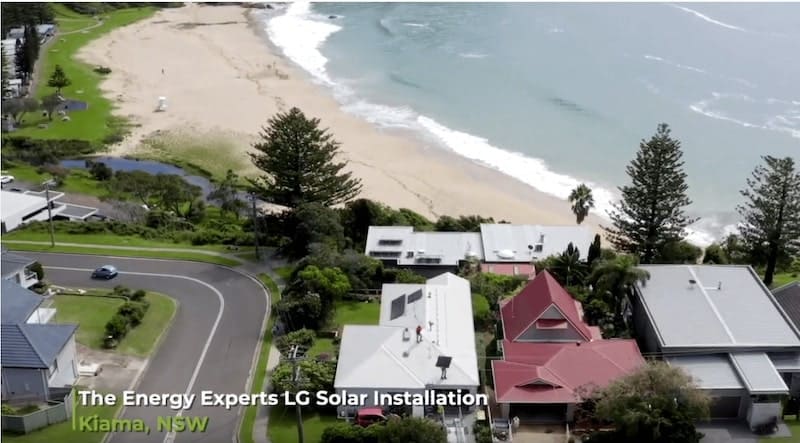Business ROI

How do I know if it’s right for my business?
If your company uses at least 50% of its total electricity consumption during daylight hours, you’ll find it will benefit greatly from installing a solar power system. Simply by using the electricity that your system produces each day (eg. running machinery, air-conditioners, lighting, computers, refrigerators etc), you’ll see an immediate reduction in your bill.
How it works
Instead of buying your power from the grid, you get it direct from your own power source: the sun. The panels on your rooftop generate power during daylight hours, which you use for free (even if it’s a cloudy day, your panels still produce power). At night, you’ll draw some power from the grid, as you always have.
But because your electricity-hungry equipment has run mostly during the day, you’ll find your electricity bills will drop dramatically.


What about battery storage?
Commercial battery storage systems are slowly becoming more affordable. Batteries allow you to store any surplus solar power, then you can draw down on this when required. eg. in the early morning/evening/overnight. All of the systems we recommend are ‘battery-compatible’, so you can install a battery storage system whenever you like.
What brands are good?
There’s huge variation in the quality of solar systems in Australia. The trick is to buy equipment that’s made by major companies that have been manufacturing components for at least 10 years.
LG solar panels have been ranked No. 1 by CHOICE magazine and other independent testing facilities for a number of years. We tend to preference these panels because of their high-performance, bankability, long warranty and durability. SunPower, SunTech, Jinko and Longi are reputable Chinese-made brands, but many others are best avoided.
Your inverter plays a critical role – it’s like the engine of the whole system. If you install either SolarEdge or Fronius, you can’t go wrong. If you have any sort of shade on your roof, SolarEdge is definitely the way to go, as it allows for individual panel performance (and monitoring). This means if one panel is affected by shade, bird poo, leaf litter, etc, it won’t bring down the performance of your other panels to the lowest performing panel’s output (this is what happens with a standard string inverter). You can also monitor each panel’s performance in real-time, so you can pick up on a fault quickly if ever one occurs, reducing downtime and callout fees.
The general rule of thumb is ‘you get what you pay for’. There are some incredibly cheap systems on offer, but be mindful that what’s far more important than the upfront cost is the amount of electricity your system will generate over its lifetime. ie. how much it will save you. You’re better off paying a bit more for a high-performance system, than not paying enough for an inferior one.
Are there still rebates available?
Yes. There are still generous rebates towards the cost of commercial and residential systems. The Federal government covers as much as $50,000 of the cost of your system through the national rebate scheme.
Do I get paid for the electricity my system produces?
Yes. You get paid for any surplus power that your system produces, between 6-11c/kWh, depending on which energy provider you’re with. What makes the most sense is to use the bulk of your free solar power during the day, and feed very little back to the grid.
How much can I expect to save?
This very much depends on the size and type of system you buy
| Your usage | System size | Expected savings p.a.* | Return on Investment |
|---|---|---|---|
| Small user ($900-$1,500/qtr) | 10kW system | $3,200 | 3-4 years |
| Medium user ($1,500-$3,000/qtr) | 20kW system | $6,400 | 3-4 years |
| Large user ($3,000-$5,000/qtr) | 50kW system | $16,000 | 3 years |
| Extra large user ($5,000-$10,000/qtr) | 99kW system | $31,000 | 3 years |
*Assumes tariff is 22c/kWh incl GST, that you self-consume all of the solar energy produced each day and that electricity prices will remain stable.
Who should I choose to install my system?
Just as important as the quality of the components you choose is the quality of the installation, as corners can certainly be cut by unscrupulous installers. It’s best to have your system installed by a company that’s been installing systems for at least 5 years, is a Clean Energy Council Approved Solar Retailer, and consistently receives good (independent) reviews. Our dedicated, long term installation partners play an integral role in our success. They’ve been a part of our team for many years, ensuring our work is completed to the highest possible standard. By working hand in hand, we’re able to ensure you receive the best designed, engineered and installed system possible.
We make installing solar easy
We’re a bit different from your average solar company. For us, it’s not about making a quick sale; it’s about helping you get the right system for your needs.







